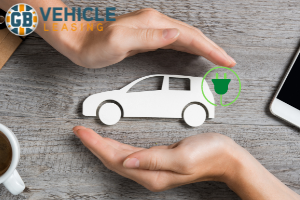
Electric car insurance explained
Electric cars are becoming more and more popular as a more environmentally friendly way to travel, but you should still do your research before you buy one. Insurance, for example, should be considered. While electric car insurance may not be as common as it is for traditional gas-powered cars, it's still important to have coverage in case something happens. In this article, we will explore electric car insurance and answer some of the most common questions people have about it.
What does electric car insurance cover?
Just like with standard gasoline-powered cars, there are a variety of insurance options available for electric cars. Your policy will likely cover things like collision damage, theft, fire, and liability.
The most basic level of electric car insurance is liability coverage. This type of policy will protect you financially if you cause damage to someone else or their property while driving your electric car. It's important to note that liability coverage does not protect your own vehicle in the event of an accident.
If you want to insure your electric car against damage, you'll need to purchase comprehensive and collision coverage. Comprehensive coverage will help pay for damages to your car that are not the result of a collision, such as theft or vandalism. Collision coverage will help pay for damages to your car if it is involved in a crash.
How to choose the right electric car insurance policy
Picking the correct car insurance policy can be a daunting task, here are some tips on how to choose the right electric car insurance policy for you.
The first thing you need to do is figure out how much coverage you need. Most policies offer basic coverage, which includes damage to your car and the other driver's car in the event of an accident. However, if you want additional coverage, such as for medical expenses or property damage, you will need to purchase a supplemental policy.
You also need to decide whether you want comprehensive and collision coverage. Comprehensive coverage will protect your car against theft, vandalism, and other types of damage, while collision coverage will pay for repairs or replacement in the event of an accident.
Additionally, you might want to consider adding roadside assistance to your policy, as electric cars can sometimes have trouble starting in cold weather.
Before you buy insurance, be sure to read the terms and conditions carefully. Make sure you understand what the policy covers and doesn't cover. Also make sure that the policy is affordable for you.

How much is electric car insurance?
Electric car insurance rates can vary depending on the company you go with, but typically they are a little bit more expensive than petrol and diesel cars. This is because electric cars are still a new technology and there is not as much data on how often they are in accidents.
However, with the rising popularity of electric cars, many insurance companies are starting to offer discounts for those making the switch to electric vehicles. So, it is important to shop around, as a about discounts and compare rates before you decide which car to buy.
Ultimately, the cost of insurance will depend on your personal driving habits and the company you choose. But in general, electric car insurance costs a little bit more than gas car insurance.
How is electric car insurance calculated?
Electric cars are still a new technology, so the insurance premiums for these vehicles can be quite high. However, as the market for electric cars grows, it is likely that the cost of insurance will come down.
When calculating your electric car insurance premium, insurers take into account a variety of factors. Personal factors like as your age, occupation, driving experience, claims history, and intended use of the car are considered. The type of vehicle, as well as the cost and availability of spare parts for any repairs, are all variables to consider.
The cost of insurance for electric cars can vary depending on the company you choose to insure with. Some companies offer discounts to drivers who switch to an electric car, while others charge higher rates.
Do I need to insure an electric car?
To drive an electric car on UK roads, you must insure it just like any other vehicle. You'll still need one, whether it's a third-party or comprehensive policy.
If you don't have insurance for your electric car and are caught driving it, you'll be fined £300 and given six points on your licence. If the issue goes to court, there is no limit on how much you might be fined, and you could lose your licence.
The police also have the authority to take and, in some situations, destroy your vehicle. In a nutshell, don't drive without insurance.

Frequently asked questions about electric car insurance
Are electric cars cheaper to insure?
According to some studies, yes - electric cars may be cheaper to insure than petrol or diesel cars.
There are several reasons why electric cars may be cheaper to insure. For one, they tend to be smaller and lighter than petrol or diesel cars, which makes them less likely to cause damage in an accident. Electric cars also tend to have fewer mechanical problems and require less maintenance, which can lead to lower insurance rates.
It's important to keep in mind that electric cars are typically more expensive than petrol or diesel cars. This means that if you have an accident, your insurance company may not pay out as much money. You may want to consider increasing your coverage to make sure you're fully protected.
Do I need a special electric car insurance policy?
In most cases, you won't need a special electric car insurance coverage to protect your vehicle. Some insurers may provide additional benefits, but any policy that covers the vehicle, whether third-party or comprehensive, is valid. Special electric car insurance is completely a personal choice and depends on your specific situation. Talk to an insurance agent to find out what works best for you.
What insurance group will my electric car be in?
As with petrol or diesel cars, the insurance group varies depending on the electric car you choose. Electric vehicles are classified based on their power output, size and other factors. For example, the Renault Zoe has insurance as low as group 14, meanwhile the Cupra Born is from insurance group 25. If you're looking to buy an electric car, it's important to bear this in mind when choosing a model – you'll need to find one that's within your budget for both purchase and insurance. For those drivers who are searching for the cheapest electric car to insure, you might consider the Smart EQ Forfour or Volkswagen e-Up. In particular, the Smart EQ Forfour is an electric city car, ideal for pottering around town. Its compact size helps to make parking easy and personalisation options are good.
Are electric car battery failures covered by insurance?
One of the main concerns about electric cars is battery failure. Many people are wondering if battery failures are covered by electric car insurance.
There is no definitive answer to this question, as each insurance company has its own policies when it comes to electric cars. However, most insurance companies will cover battery failures if they are deemed to be a result of a manufacturing defect. If the battery failure is due to something the driver did, such as not charging the car properly, then the insurance company is likely to deny the claim.
It is important to read the terms and conditions of your electric car insurance policy carefully in order to understand what is and isn't covered. If you have any questions, don't hesitate to contact your insurance company directly.
About The Author: Charlotte Kennedy
Charlotte joined the GB Vehicle Leasing team around 6 years ago starting out as an apprentice and is now being a key member of our marketing team.
Find Out More About CharlotteLatest Posts

Volkswagen Taigo vs T-Roc: How Do They Compare
Here, we explore how they compare...

Skoda Elroq Review 2025
Buckle up, folks! This new Skoda...

Pre-Registered Vehicles Explained
Learn what a pre-registered vehicle is...

Hyundai Inster Review 2025
Move over, conventional cars! The Hyundai...

Vehicle Delivery Lead Times Explained
From custom factory orders to in...



































